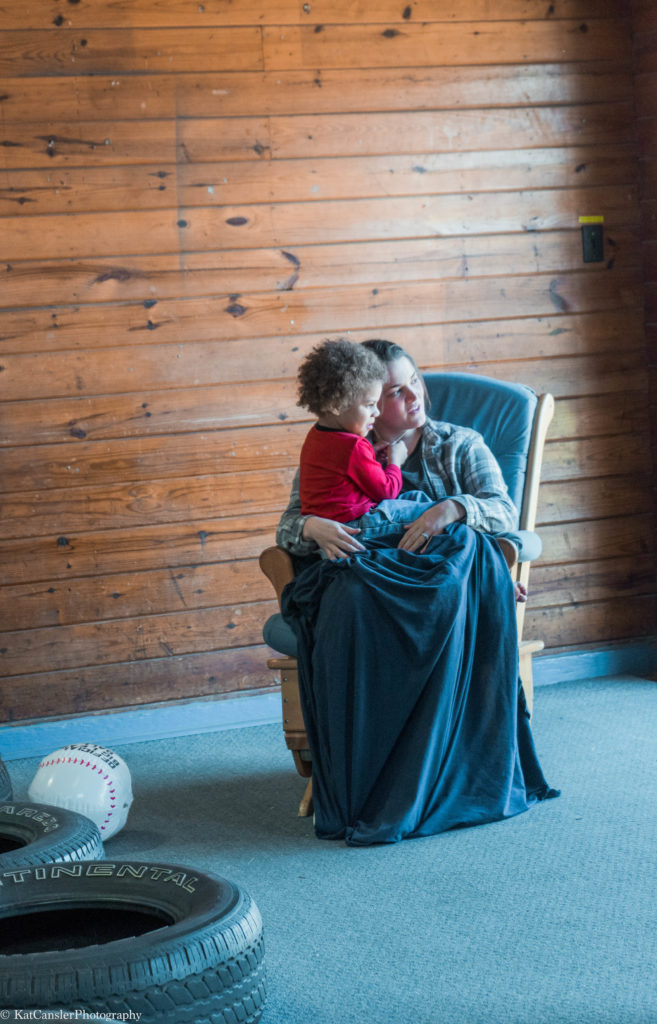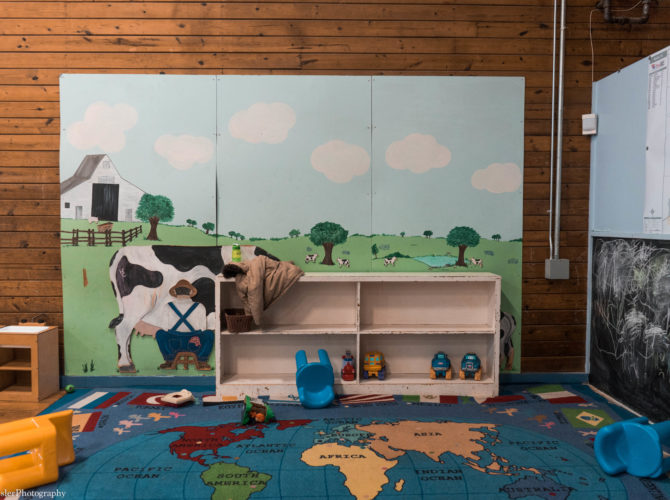Story by Emily Starr | Photo by Kat Cansler
A look into the Talitha Koum Institute with Executive Director Susan Cowley
Laughs and squeals bounce off the walls of Talitha Koum Institute as toddlers run around with toys and play games like hide-and-seek. Talitha Koum is a therapeutic mental health nursery specializing in mental healthcare of children from birth to age 5.
The children who grow up below the poverty line in Waco are the seventh generation of urban poverty, according to Susan Cowley, co-founder and executive director of Talitha Koum. These children live unstable, unpredictable and sometimes unsafe lives. Many people living in poverty experience a constant struggle for survival, and this is especially hard on children.

Cowley describes this unpredictable lifestyle as “toxic stress” and aims to combat it through a specific curriculum implemented at Talitha Koum. As Cowley and other co-founders began dreaming about the organization, they visited a local public elementary school and asked what entering kindergarteners struggled with.
“We really thought we knew what they’d say,” said Cowley. “They’d say ‘Oh, they haven’t been read to,’ or ‘They don’t know their letters, numbers [or] colors.’ But they didn’t skip a beat, dead-eyed us and said that their mental health is already shot and they can’t learn.’ And it was breathtaking.”

Co-founders Kim Jamison, Carol Salvesen and Marsha Martie joined Cowley to meet up with Dr. Keith Warren, a psychologist who worked with families and children. Warren directed them toward a cognitive curriculum using a constructivist approach.
While the psychology jargon sounds intense and complicated, the rewiring of the brain and overcoming of trauma simply happens through the regimentalized “work” the children do.
“It’s a plan, do, review. … And we do it every day,” Cowley said.
A day in the life
Each day for a Talitha Koum student doesn’t look much different from any other preschooler — play, lunch, nap, recess. It’s the method and type of play that makes it all so therapeutic.
“Everything we do, including what we do … in the gym and in the classroom is full of sensory modulation experience,” Cowley said.

Everything at Talitha Koum revolves around repetition because the stability of repeated actions creates healthy neural pathways. Routine and a structured environment are not always guaranteed for children living under toxic stress at home.
To start the day, students are directed to choose their activities, or work, in order to reinforce the children’s ability to make choices. Choices include everything from rhythmic drumming to playing with blocks. Afterward, everyone goes outside to exercise their motor skills.
Next, it’s lunchtime, an essential component of the daily routine of Talitha Koum. After lunch, the lights are dimmed, cots are set up and quiet music plays, establishing the rhythm of nap time. The music helps curate a safe and calming atmosphere.
Many children enduring toxic stress don’t have reliable bedtimes, bedtime routines or even their own bed to sleep in. The routine of each school day at Talitha Koum. It helps teach the children to self-regulate, and it decreases the levels of cortisol, a stress hormone, in their brains.
Additionally, Talitha Koum cares about more than just decreasing the stress levels of their students. Weekly parent meetings are held to inform and support the parents of current and past students who are under stress as well.
Mentorship
Cowley says a major criterion for Talitha Koum teachers is “the patience of Job.”

“[It takes] a real strong sense of, not just loving the child, but being patient with the child and loving every child every time, no matter what they do to you or around you,” said Cowley.
This kind of love, safety and stability layered throughout every aspect of Talitha Koum has had profound effects on the students, both while they are enrolled and years later.
Every child at Talitha Koum is paired with a mentor who will remain by their side from kindergarten to high school graduation. Mentors can provide an unconditional love children in poverty may not feel at home.
The school-to-prison pipeline
A dream of Cowley’s is to end the school-to-prison pipeline, which calls for a different approach to discipline.
Most schools have a zero tolerance policy for behavioral issues, which can lead to students in the judicial system. Research shows that this can begin at as young as 4 years old — the age kids can be removed from the classroom immediately for behavioral issues.
“You know, education used to be your way out of poverty… if it’s your way into prison, we have something really wrong,” said Cowley.
Talitha Koum aspires to teach the community about mental healthcare and its importance for children in the early stages of development.
“We really believe schools will not — cannot — become trauma sensitive until they’re trauma informed,” Cowley said.
Cowley believes holistic, proper care for children, starting as early as conception to age 5, can provide hope for securing promising futures.
In the future, she dreams of implementing mental health care programs in primary schools for Pre-K and kindergarten classes to put an end to the school-to-prison pipeline and make sure every child knows there’s a seat for them.
Full-circle student
Co-founder Cowley’s own mentee, who came to Talitha Koum as an infant is now 17-years-old.
“She had all A’s on her report card and she was so proud [when she] came and showed me last week,” Cowley said.
It’s a monumental year for the mentoring program as the soon-to-be first TKI graduate, Kelle DeSouza, approaches her high school graduation this spring. DeSouza’s accomplishments include playing violin in the orchestra, being a semifinalist for the National Dell Scholarship and pre-acceptance to Dallas Baptist University.
“[Talitha Koum mentors] taught us how to handle things at home and were just a really caring environment… [they] focus on God and how he loves us, which is really great because that’s something we don’t always get at home,” DeSouza said.
DeSouza plans to study secondary education and become a teacher.
“It’s always been teachers who were there for me — that’s why I want to be a teacher.”
The science behind the “constructivist approach cognitive curriculum”
cognitive curriculum using a constructivist approach — this type of curriculum is focused on encouraging the brain development of children under 5 years old to self-regulate stress by operating out of the prefrontal cortex instead of the lower parts of the brain which triggers a freeze, then fight-or-flight response
“work” — by calling the activities “work,” students become acclimated to the idea of work, which will soon be associated with school
toxic stress — damaging stress that derails healthy brain development by excessively or prolongedly activating stress response systems in the brain (Center on the Developing Child, Harvard University)
sensory modulation — the organization of sensory information for ongoing use (North Shore Pediatric Therapy)


